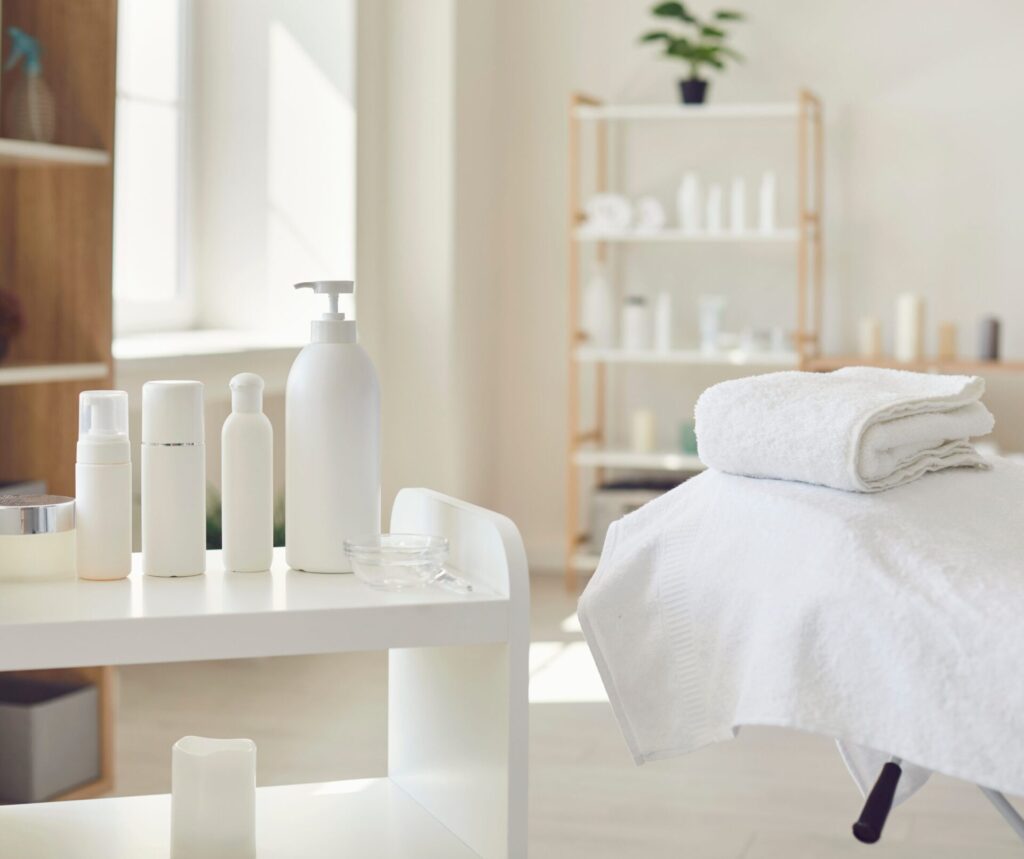Hi, I’m Debbie Allen, and I’ve been in the hair and beauty industry for over 40 years. My career began with training in both hair and beauty, and over the years, I’ve owned and operated hair and beauty salons, worked as a self-employed solo business owner, partnered in a business and now manage a limited company, as both a trainer and mindset coach. I truly believe that with hard work, dedication, and the right guidance, you can achieve your business goals.
Venturing into the hair, beauty, or nails industry as a self-employed therapist is an exciting journey. You’ve completed your training and earned your qualifications, but the road from graduating to running a successful business can seem daunting. While insurance might be the only business aspect your training covered, there are numerous steps to consider before launching your venture.
This guide will simplify the initial steps, covering everything you need to know to start a reputable and legally compliant business in the beauty industry. From choosing your business structure to mastering time management, we’ll help you navigate the path to self-employment with confidence.
- Choose the Right Business Structure
Before you begin, decide what type of business you want to operate: sole trader, partnership, or limited company.
- Sole Trader: The easiest option for many solo beauty therapists, especially when you’re just starting out. You’ll operate under your name, file taxes through self-assessment, and keep things simple financially.
- Partnership: If you’re joining forces with another therapist, you’ll need a partnership agreement. This legal document outlines each partner’s roles and ensures a smooth working relationship. Legal advice is advisable here to prevent future disputes.
- Limited Company: As a limited company, your business is separate from you personally. This structure offers legal and financial protection but involves more paperwork. You’ll need to register your company with Companies House and open a separate business account. Consulting an accountant is key here for financial management and tax purposes.

- Decide Where You’ll Work: Home, Mobile, or Premises?
There are various options for running your beauty business. Each has pros and cons, so consider what works best for you.
Home-Based Clinic: Setting up at home is convenient, especially if you have the space. However, you’ll need to inform your mortgage provider or landlord, check local council permissions, and ensure that your home setup meets health and safety regulations.
Renting a Premises: If working from home isn’t an option, you can rent a space. This might range from renting a room in a salon to leasing a standalone building. Room rental is a more cost-effective choice when starting out, helping you build a client base before committing to a long-term lease.
Mobile Therapist: Some therapists prefer the flexibility of offering mobile services, traveling to clients’ homes. If you go this route, ensure your vehicle insurance includes business use.
- Master Time Management and Client Communication
Effective time management is crucial to avoid burnout. As a self-employed therapist, you’ll need to juggle appointments, client queries, and administrative tasks. Here are a few tips:
- Set Boundaries: Clearly define your working hours and communicate these to clients. Use an automated reply system for inquiries to inform clients of when they can expect a response.
- Regular Check-Ins: Designate specific times each day to check messages and respond to bookings. This prevents you from being constantly on call while ensuring timely communication.

- Legal Steps Before You Start Taking Clients
Register with HMRC
If you’re working for yourself, you need to register with HMRC as self-employed. This process is straightforward and can be completed online via the government website. If you decide to set up a limited company, you’ll need to register with Companies House. .https://www.gov.uk/limited-company-formation/register-your-company
Insurance
Having the right insurance is critical before taking on paying clients. You’ll need public liability, treatment liability, and potentially product liability if you’re selling products. Mobile therapists must add business use to their vehicle insurance. Your insurance should require proof of your qualifications and ensure you have solid record-keeping practices.
Special Treatment Licenses
Some treatments, such as massage or semi-permanent makeup, may require a special license depending on your location. Always check with your local council to see if you need a license to operate legally.
GDPR Compliance
As a therapist, you’ll handle sensitive personal data. The General Data Protection Regulation (GDPR) requires that you securely collect, process, and store this data. Ensure that all client information is stored securely, whether physically or digitally, and register with the Information Commissioner’s Office (ICO) if necessary. https://ico.org.uk/for-organisations/data-protection-fee/
- Building Your Client Base: Marketing and Promotion
Once you’ve completed the legalities and are ready to take on clients, the next challenge is growing your business. A solid marketing strategy will help you attract and retain clients.
Social Media Presence
Social media is a powerful tool for beauty businesses. Platforms like Facebook and Instagram allow you to showcase your services, build an audience, and engage with potential clients. Start by setting up a professional business page on Facebook. Ask friends, family, and case study clients to leave reviews to build credibility.

Google My Business
Registering your business on Google is essential for local visibility. Clients often search for nearby services, and having a Google listing with reviews can give you a competitive edge. Regularly update your business details and add photos to showcase your work.
Website
While social media is effective, having a professional website adds credibility to your business. It should clearly outline your services, prices, and contact information. A well-optimized website increases your chances of appearing in local Google searches, boosting your online presence. Additionally, owning a website ensures that you control your business information—unlike social media platforms that could change or disappear.
- Final Thoughts: Taking the Leap
Starting a beauty business from scratch may seem overwhelming, but breaking it down step by step makes it manageable. Stay organized, get your legal requirements in place, and remember that growth takes time. Building a successful business requires patience and perseverance, but with the right planning, you can achieve your goals.
Allow yourself to be a beginner. No one starts off perfect, but with dedication and a clear strategy, you’ll find yourself running a thriving beauty business in no time.
Debbie Allen
To connect with Debbie you can visit her listing here

